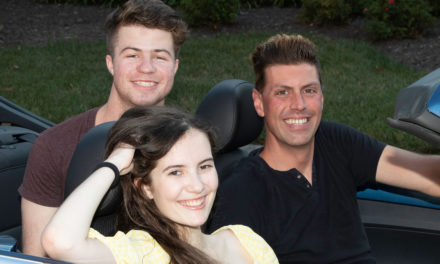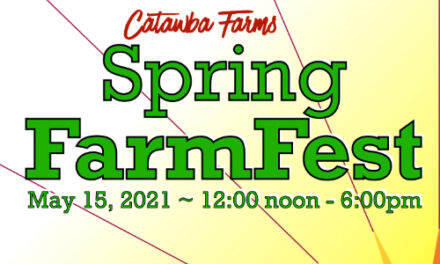Newton, NC – Smithsonian Exhibition: What would life be like without teachers, doctors or firefighters? Every day Americans are hard at work on farms, factories, in homes or at desks keeping our communities thriving. The Historical Association of Catawba County (HACC), in cooperation with the North Carolina Humanities Council (NCHC), will explore the professions and the people that sustain American society when it hosts The Way We Worked, a Smithsonian Institution traveling exhibition. The Way We Worked will be on view August 10 through September 18.
The Catawba County History Museum and the surrounding community have been expressly chosen by the North Carolina Humanities Council to host The Way We Worked as part of the Museum on Main Street project—a national/state/local partnership to bring exhibitions and programs to rural cultural organizations. The exhibition will tour six communities in North Carolina during the 2018 calendar year.
The Way We Worked, adapted from an original exhibition developed by the National Archives and Records Administration, explores how work has become a central element in American culture. It traces the many changes that have affected the workforce and work environments over the past 150 years, including the growth of manufacturing and increasing use of technology. The exhibition draws from the Archives’ rich collections, including historical photographs, archival accounts of workers, film, audio and interactives, to tell the compelling story of how work impacts our individual lives and the historical and cultural fabric of our communities.
Such free events include:
August 11, 10am, Tools of Our Trade student documentaries premiere and HACC annual membership meeting in the original 1924 courtroom. Sponsored by Stories:YES and the Smithsonian’s Museum on Main Street program.
August 11, 2pm, Veterans Round Table during which veterans of each international conflict from (and including) World War II will discuss their experiences returning to the U.S.A. in the original 1924 courtroom. In partnership with Abernethy Laurels Retirement Community.
August 25, 10am – 3pm & August 26, 2pm – 5pm, A Courthouse Drama living history of the 1934 textile mill labor debate on the Square in Newton and in the Museum. In partnership with the Old Post Office Playhouse.
September 8, 6pm, Mill Ballads performed by Hunter Holmes on the Eastside Museum lawn. Sponsored by NCHC and the Smithsonian’s Museum on Main Street program.
The Way We Worked is part of Museum on Main Street, a unique collaboration between the Smithsonian Institution Traveling Exhibition Service (SITES), state humanities councils across the nation and local host institutions. To learn more about The Way We Worked and other Museum on Main Street exhibitions, visit www.museumonmainstreet.org.
Support for Museum on Main Street has been provided by the United States Congress. Local sponsors include: City of Newton, Catawba County Government, George Foundation, Kulynych Family Foundation, Carolina Glove, Lee Industries, John Hoyle Chapter of the National Society of the Daughters of the American Revolution, Abernethy Laurels, private individuals, and HACC members.
In-kind support provided by: Catawba Valley Community College Furniture Academy, Catawba Farms, Corning Optical Communication, McCreary Modern, PDQ, and volunteers.
SITES connects millions of Americans with their shared cultural heritage through a wide range of art, science and history exhibitions. State humanities councils, located in each state and U.S. territory, support community-based humanities programs that highlight such topics as local history, literature and cultural traditions.
The Historical Association of Catawba County serves the local community by providing place-based experiences across four historic sites. To learn more, visit www.sites.si.edu, www.nchumanities.org/ and www.catawbahistory.org.








